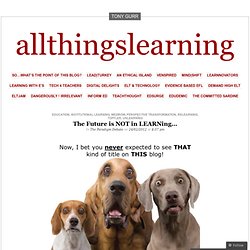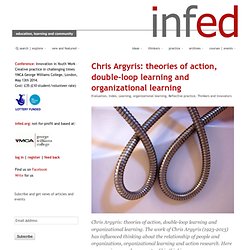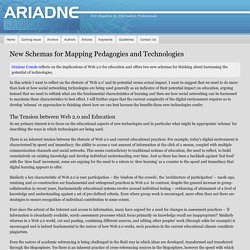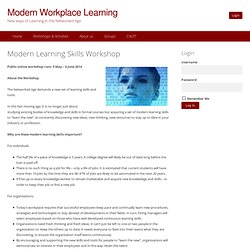

Creativity. The Future is NOT in LEARNing… In one of my recent posts – Not All LEARNing is Created Equal – I finished up by using Alvin Toffler’s well-known quote: …and suggested that schools, colleges and universities really needed to do a great deal of UNlearning and RElearning – if they wanted to get serious about moving from the SUPERFICIAL LEARNing we see so much of and “pick up the ball” in terms of the type of TRANSFORMATIONAL LEARNing our students need.

I began to wonder about this – and did a bit of thunking. What I discovered was that Toffler did not actually “say” this – what he actually put down on paper was: “The new education must teach the individual how to classify and reclassify information, how to evaluate its veracity, how to change categories when necessary, how to move from the concrete to the abstract and back, how to look at problems from a new direction — how to teach himself. Adult Education/Training. Adult Education/Training. From Individual to Organizational Learning. Chris Argyris: theories of action, double-loop learning and organizational learning. Contents: introduction · life · theories of action: theory in use and espoused theory · single-loop and double-loop learning · model I and model II · organizational learning · conclusion · further reading and references · links · cite Chris Argyris has made a significant contribution to the development of our appreciation of organizational learning, and, almost in passing, deepened our understanding of experiential learning.

On this page we examine the significance of the models he developed with Donald Schön of single-loop and double-loop learning, and how these translate into contrasting models of organizational learning systems. Life Chris Argyris was born in Newark, New Jersey on July 16, 1923 and grew up in Irvington, New Jersey. New Schemas for Mapping Pedagogies and Technologies. In this article I want to reflect on the rhetoric of 'Web 2.0' and its potential versus actual impact.

I want to suggest that we need to do more than look at how social networking technologies are being used generally as an indicator of their potential impact on education, arguing instead that we need to rethink what are the fundamental characteristics of learning and then see how social networking can be harnessed to maximise these characteristics to best effect. I will further argue that the current complexity of the digital environment requires us to develop 'schema' or approaches to thinking about how we can best harness the benefits these new technologies confer. The Tension between Web 2.0 and Education So my primary interest is to focus on the educational aspects of new technologies and in particular what might be appropriate 'schema' for describing the ways in which technologies are being used.
Technology in The Classroom - Technology Is Learning. ELTJ: Digital literacies. Applying Social Informatics for Tertiaryteaching. Classroom 2.0. Modern Learning Strategies Workshop. Public online workshop runs: 5 May – 6 June 2014 About the Workshop The Networked Age demands a new set of learning skills and tools.

In this fast moving age, it is no longer just about studying existing bodies of knowledge and skills in formal courses but acquiring a set of modern learning skills to “learn the new”, ie constantly discovering new ideas, new thinking, new resources to stay up to date in your industry or profession. Why are these modern learning skills important? For individuals.